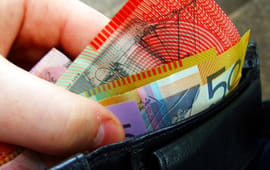A guide to production costs and budgets
When embarking on a self-publishing endeavour, it’s smart to first create a budget. Of course, you’ll never be able to work out the exact costs in advance but it’s wise to have an approximate idea soyou don’t run out of money halfway through or find yourself having to fork over more than expected.
Download this breakdown of industry standard prices for the kinds of services you might be expected to need when self-publishing.

A guide to self-publishing
Self-publishing is becoming a popular option for writers of all styles. It gives you the opportunity to have complete control over the production of your work. However, it also necessitates that you manage each part of the publishing process, which is no small task.
The most successful self-publishers are those who plan their project carefully and set themselves realistic goals.

All about self-publishing
Self-publishing is becoming a popular option for writers of all styles. It gives you the opportunity to have complete control over the production of your work. However, it also necessitates that you manage each part of the publishing process, which is no small task.
The most successful self-published authors are those who plan their project carefully and set themselves realistic goals.

Book Launches
This fact sheet on ‘Book Launches’ covers if you need a book launch and how to organise one.

Contracts and Obtaining Advice
Our FAQ on Contracts and Obtaining Advice covers what a contract is and where to get professional advice.

Copyright
Our fact sheet ‘Copyright’ includes what is copyright, what does it cover, and what to do if it has been infringed.

Editors
This page on editors covers the four main stages of editing and where to find an editor.

Epublishing
This fact sheet on ‘Epublishing’ covers why you would epublish and how to epublish.

Financial Resources
Our fact sheet ‘Financial Resources’ covers what you need to do if you want to earn an income from being a professional writer.

General Guidelines for Submitting Unsolicited Manuscripts
This fact sheet ‘General Guidelines for Submitting Unsolicited Manuscripts’ covers the do’s and don’ts of submitting unsolicited manuscripts.

Getting legal advice
Been offered a publishing contract? Need advice on how to protect your intellectual property? Want to make sure you avoid litigation?
The following organisations can provide legal or contractual advice to help you.

How to approach a literary agent
It will save you time and reduce your chances of rejection if you research an agent’s submission style and business practices before approaching them.
When contacting agents, remember the basics: be polite, follow any submission guidelines and keep your communication clear and concise.

How to approach a publisher
There are a great variety of publishers in Australia producing all manner of books.
Publishers are responsible for all the processes associated with taking a book from a manuscript into bookstores. This includes editing, typesetting, design, printing, marketing, promotion and distribution. A ‘signed’ author usually receives a small advance payment from the publisher and then royalties from sales once the publisher earns back the advance.

How to publish your poetry (video)
In this talk for Writers Victoria in March 2014, poet, memoirist and editor Peter Rose advised poets on how to get their work published in Australia.
Peter Rose is the author of the award-winning family memoir Rose Boys (2001), just reissued as a Text Classic. His latest novel is Roddy Parr (Fourth Estate, 2010). He has also published five poetry collections, most recently Crimson Crop (UWA Publishing, 2012), which won a 2012 Queensland Literary Award.

Insight into literary agents
Jacinta di Mase, of Jacinta di Mase Management and secretary of the Australian Literary Agents Association, helps us answer some common questions about literary agents.
A literary agent is a writer’s representative in the commercial world: their manager, their business representative, protector of their copyright, the one who weighs in on the side of the author/illustrator in all dealings.

Literary Agents
This FAQ on Literary Agents covers what a literary agent does and where you can find one.

Manuscript Assessment
This fact sheet on ‘Manuscript Assessment’ covers what a manuscript assessment includes and where to get one.

Mentorships
This fact sheet on ‘Mentorships’ covers all the details of what a mentorship includes and how it is beneficial.

Online Presence
This FAQ on Online Presence covers why you should have one and which platforms to use.

Pitching tips
Maria Katsonis has successfully pitched her articles via email, telephone, in person and even via Twitter.
Writers Victoria intern Sharona Lin picked Maria’s brain ahead of her upcoming workshop on Pitching Essentials for Writers.

Publishing Options
This fact sheet ‘Publishing Options’ covers the three different types of publishing.

Self-Promotion
This FAQ on Self-Promotion covers the basics of promoting your writing and why you need to do it.

Self-Publishing
This page on self-publishing covers why you might choose to self-publish and information on how to self-publish.

Submitting to Literary Magazines
This fact sheet ‘Submitting to Literary Magazines’ covers where to look to get published.

Traditional Manuscript Publishers
This fact sheet ‘Traditional Manuscript Publishers’ covers where to get published.

Types of Self-Publishers
This fact sheet ‘Types of Self-Publishers’ covers the three main types of self-publishing.

Writing a Cover Letter and Synopsis
This fact sheet ‘Writing a Cover Letter and Synopsis’ covers what is a cover letter, what is a synposis, and a guide on how to write both.

